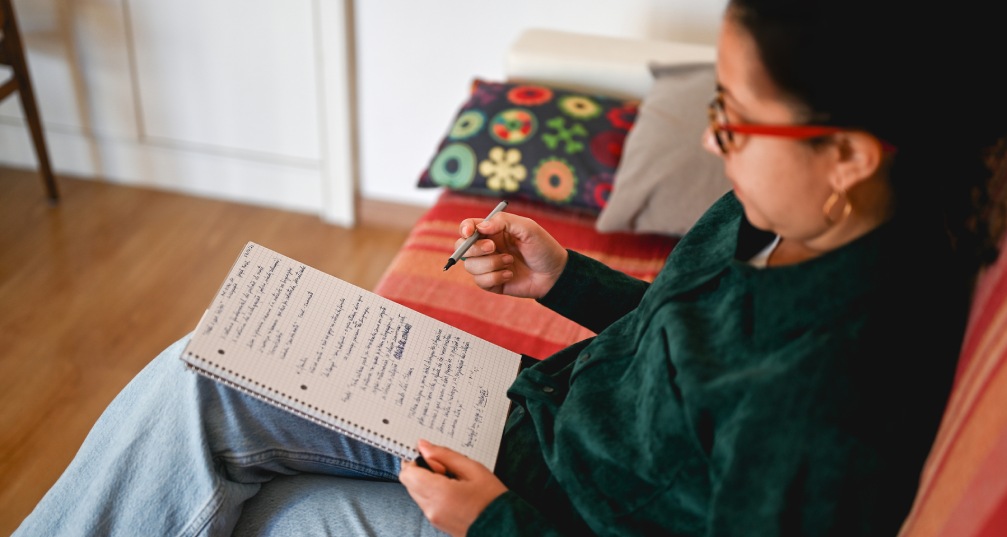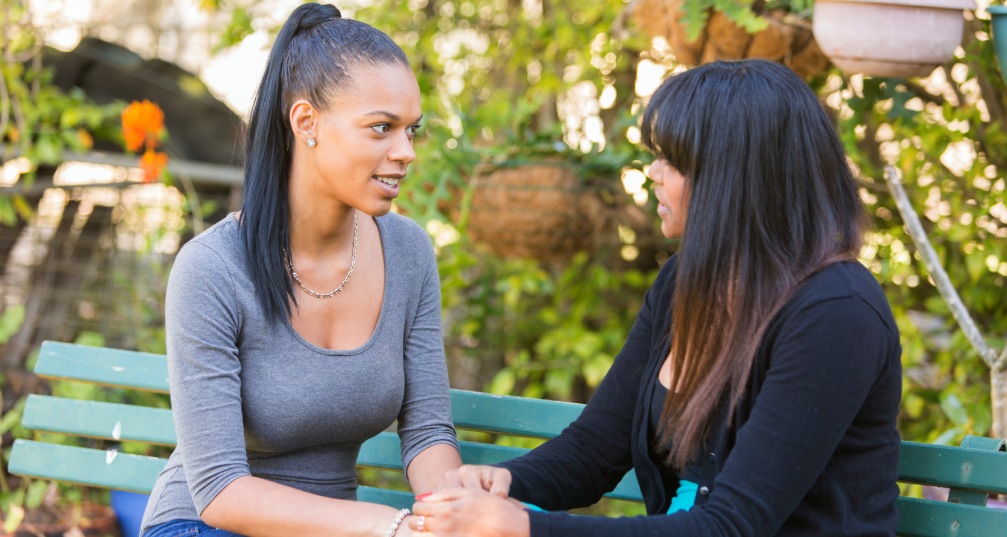Harper College will be closed from Wednesday, December 24, through Sunday, January 4, for Winter Break.

 It’s all too easy for your personal or professional life to slowly turn into something
you feel stuck in. But no matter your circumstances, there’s always a way to break
out of those mental and physical routines and start moving in the right direction.
Here are a few small changes you can make to your everyday mindset and habits to find
the meaningful change you’ve been looking for.
It’s all too easy for your personal or professional life to slowly turn into something
you feel stuck in. But no matter your circumstances, there’s always a way to break
out of those mental and physical routines and start moving in the right direction.
Here are a few small changes you can make to your everyday mindset and habits to find
the meaningful change you’ve been looking for.
 Making any kind of significant change in your life can feel hard, but that’s especially
the case when your goal is far too large to tackle in one step. Instead of saying
“I want to write a novel” or “I’d like to get into gardening,” break those big, indefinite
objectives into a series of smaller, more achievable tasks. “Write for 30 minutes
after breakfast” or “Weed the back corner of the garden” are clear and actionable,
and checking them off your list will feel satisfying and create just enough forward
momentum to keep going.
Making any kind of significant change in your life can feel hard, but that’s especially
the case when your goal is far too large to tackle in one step. Instead of saying
“I want to write a novel” or “I’d like to get into gardening,” break those big, indefinite
objectives into a series of smaller, more achievable tasks. “Write for 30 minutes
after breakfast” or “Weed the back corner of the garden” are clear and actionable,
and checking them off your list will feel satisfying and create just enough forward
momentum to keep going.
 It’s easy to get stuck in your head with your dreams, worries, and other thoughts
swirling around together. Physical activity is a good way to break through any psychological
rut and clear out those mental cobwebs with some fresh air. Exercise of any kind—walking,
running, cycling, weightlifting, even housework—will boost your mood and energy levels
while also getting your mind off whatever was weighing on you. Try a new sport or
fitness class to make it more interesting and get the added benefits of socializing.
It’s easy to get stuck in your head with your dreams, worries, and other thoughts
swirling around together. Physical activity is a good way to break through any psychological
rut and clear out those mental cobwebs with some fresh air. Exercise of any kind—walking,
running, cycling, weightlifting, even housework—will boost your mood and energy levels
while also getting your mind off whatever was weighing on you. Try a new sport or
fitness class to make it more interesting and get the added benefits of socializing.
 Keith Goode, Academic Advisor at Harper College, is a Harper alum who didn’t have a major in mind when he started
school. But as he started taking general education classes, he discovered some things
he liked that gave him better direction. “Sometimes it’s good to just decide to make
the move and try something new even if you don’t have it all figured out yet,” says
Goode. “Whatever it is, can I try to commit to something? Even if it’s once a week
for a class, maybe exercise, a painting course, whatever it may be.” How that looks
in your life will depend on several factors, but what’s most important is trying things
that might be out of your comfort zone.
Keith Goode, Academic Advisor at Harper College, is a Harper alum who didn’t have a major in mind when he started
school. But as he started taking general education classes, he discovered some things
he liked that gave him better direction. “Sometimes it’s good to just decide to make
the move and try something new even if you don’t have it all figured out yet,” says
Goode. “Whatever it is, can I try to commit to something? Even if it’s once a week
for a class, maybe exercise, a painting course, whatever it may be.” How that looks
in your life will depend on several factors, but what’s most important is trying things
that might be out of your comfort zone.
 Reading is one area where trying something new is relatively easy. Reading different
kinds of books, graphic novels, articles, or blogs on topics outside your usual interests
or academic assignments can spark your creativity, broaden your worldview, and be
just plain fun. Whether it’s on paper, an ebook, or audiobook, reading can transport
you anywhere. One quick (and free) tip: stop by your local library and browse the
New Books shelf to see what catches your eye.
Reading is one area where trying something new is relatively easy. Reading different
kinds of books, graphic novels, articles, or blogs on topics outside your usual interests
or academic assignments can spark your creativity, broaden your worldview, and be
just plain fun. Whether it’s on paper, an ebook, or audiobook, reading can transport
you anywhere. One quick (and free) tip: stop by your local library and browse the
New Books shelf to see what catches your eye.
 It’s hard to ask for help, especially when you’re feeling stuck or hopeless about
your current situation. For students specifically, there are people ready and willing
to assist you. “I recommend to students that they use the variety of resources available
to them, from peer counseling to your academic advisor to the faculty that you’ll
work with,” says Goode. “Those are all opportunities to get inspired and to learn
more about the job market you might be interested in.” Whether for optimizing your
resume, how to interview well, or where to find jobs, don’t be afraid to use the tools
and people available to you.
It’s hard to ask for help, especially when you’re feeling stuck or hopeless about
your current situation. For students specifically, there are people ready and willing
to assist you. “I recommend to students that they use the variety of resources available
to them, from peer counseling to your academic advisor to the faculty that you’ll
work with,” says Goode. “Those are all opportunities to get inspired and to learn
more about the job market you might be interested in.” Whether for optimizing your
resume, how to interview well, or where to find jobs, don’t be afraid to use the tools
and people available to you.
 Keeping a journal to reflect on your thoughts, feelings, and goals is a low-cost but
high-impact routine you can establish within your daily life. Writing about whatever
is going on in your life and mind can help clarify your thoughts and identify areas
for change. It will also serve as a powerful reminder of what you’ve been able to
work through in your life and work over time.
Keeping a journal to reflect on your thoughts, feelings, and goals is a low-cost but
high-impact routine you can establish within your daily life. Writing about whatever
is going on in your life and mind can help clarify your thoughts and identify areas
for change. It will also serve as a powerful reminder of what you’ve been able to
work through in your life and work over time.
Originally Published Apr 18, 2024
More Helpful Tips from Picture Yourself